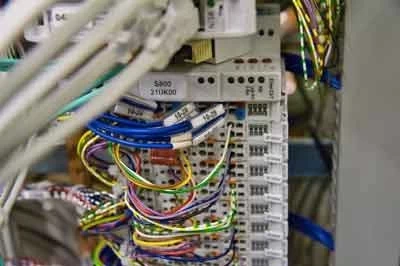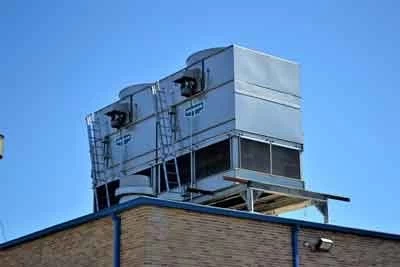HVAC Systems
Balancing Investment vs. Savings in BAS for HVAC Systems
Protecting HVAC Systems within a Building Automation Network
HVAC Systems

How Artificial Intelligence is Reshaping HVAC Efficiency
Traditionally, HVAC control within building automation systems has relied on rule-based systems and human programmed schedules. These systems, while effective, leave significant room for further optimization. The emergence of artificial intelligence (AI) and machine learning (ML) offers a paradigm shift in HVAC management, enabling systems to proactively learn, adapt, and achieve unprecedented levels of energy efficiency.
Visit Our Building Automation Study Course
How AI Transforms HVAC Operations
Data-Driven Pattern Recognition: AI algorithms excel at analyzing...
Related Articles

Protecting HVAC Systems within a Building Automation Network
In modern buildings, the HVAC system is rarely an isolated entity. Building automation systems (BAS) integrate HVAC components with an array of sensors, controllers, and a central management platform — all connected through networks. This interconnectivity provides significant benefits in...

How Building Automation-HVAC Integration Improves Indoor Air Quality
Traditionally, HVAC systems within the context of building automation have focused primarily on temperature control for occupant comfort. However, the growing awareness of the profound impact of indoor air quality (IAQ) on health, well-being, and cognitive performance is driving an increased...

Wireless Sensor Networks and the Impact on HVAC Monitoring
Traditional building automation systems have often relied on a relatively sparse network of wired sensors to monitor temperature, humidity, and perhaps a few other basic parameters. Wireless sensor networks are disrupting this model, enabling the deployment of far denser arrays of sensors,...

Legacy Systems: Strategies for Integrating Outdated HVAC Equipment into Modern BAS
Building automation offers powerful tools for streamlining HVAC operations, optimizing efficiency, and improving comfort. However, a significant challenge arises when dealing with legacy systems - older HVAC equipment from various generations that might lack the native compatibility necessary for...

Using Building Automation Analytics to Drive Operational Insights
Building automation systems (BAS) continuously generate an enormous amount of data on HVAC equipment operation, energy consumption patterns, sensor readings, and more. This data, when properly harnessed, holds the key to unlocking critical insights that can significantly enhance building...

How Building Automation-HVAC Integration Improves Indoor Air Quality
Traditionally, HVAC systems within the context of building automation have focused primarily on temperature control for occupant comfort. However, the growing awareness of the profound impact of indoor air quality (IAQ) on health, well-being, and cognitive performance is driving an increased...

Wireless Sensor Networks and the Impact on HVAC Monitoring
Traditional building automation systems have often relied on a relatively sparse network of wired sensors to monitor temperature, humidity, and perhaps a few other basic parameters. Wireless sensor networks are disrupting this model, enabling the deployment of far denser arrays of sensors,...

Cloud-Based BAS: Benefits, Drawbacks, and Considerations for Remote Management
Cloud-Based BAS: Benefits, Drawbacks, and Considerations for Remote Management The traditional model of building automation systems (BAS) has involved on-premises servers, software installations, and localized data storage. Cloud-based solutions are disrupting this model, offering the potential...

How Artificial Intelligence is Reshaping HVAC Efficiency
Traditionally, HVAC control within building automation systems has relied on rule-based systems and human programmed schedules. These systems, while effective, leave significant room for further optimization. The emergence of artificial intelligence (AI) and machine learning (ML) offers...

Legacy Systems: Strategies for Integrating Outdated HVAC Equipment into Modern BAS
Building automation offers powerful tools for streamlining HVAC operations, optimizing efficiency, and improving comfort. However, a significant challenge arises when dealing with legacy systems - older HVAC equipment from various generations that might lack the native compatibility necessary for...
